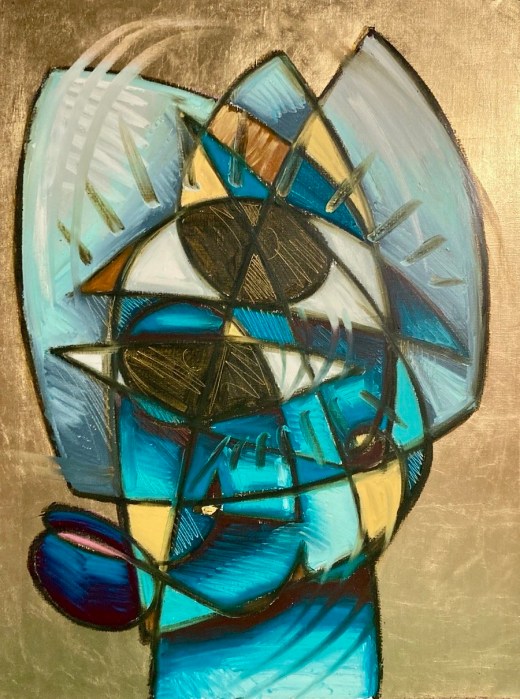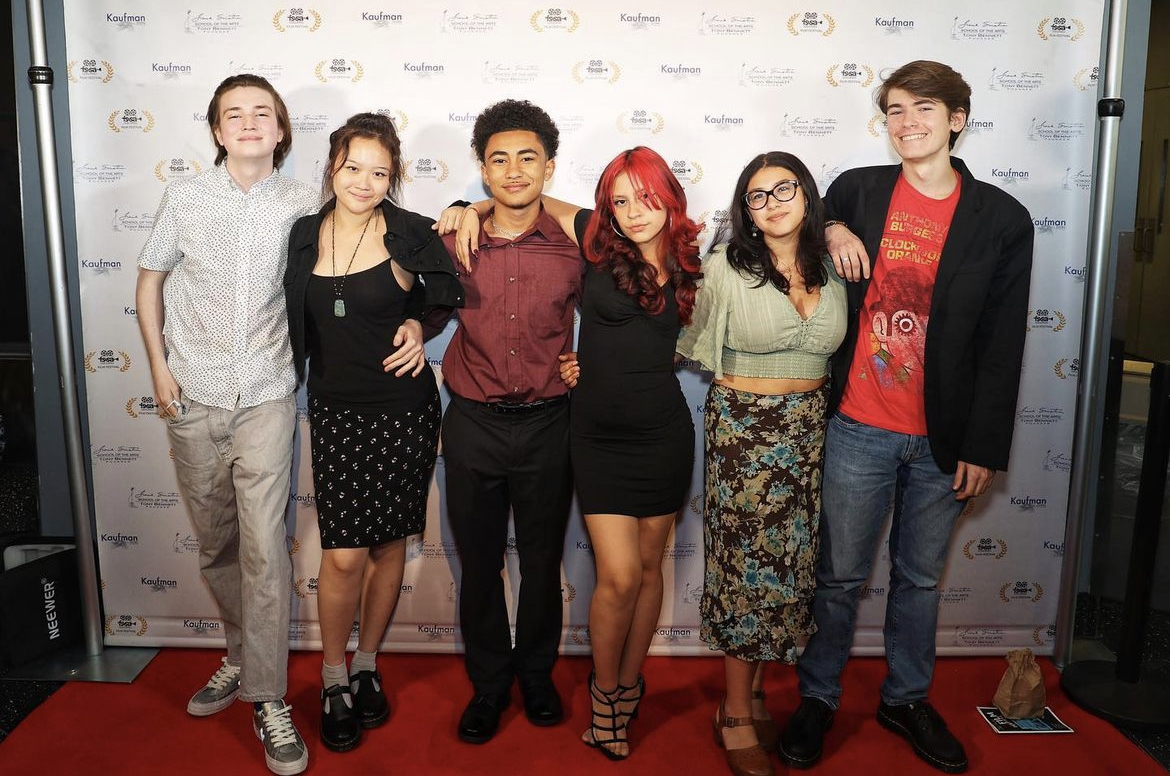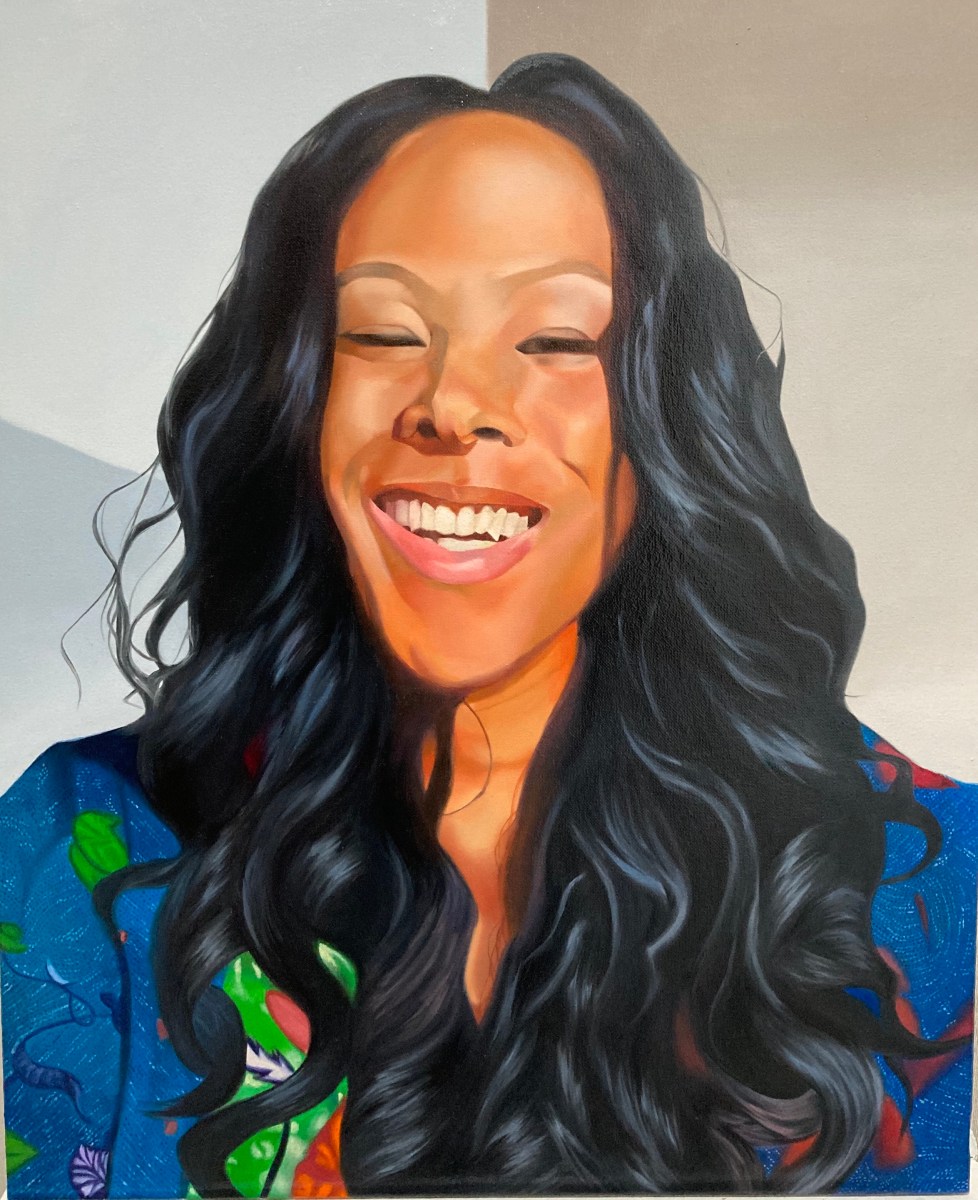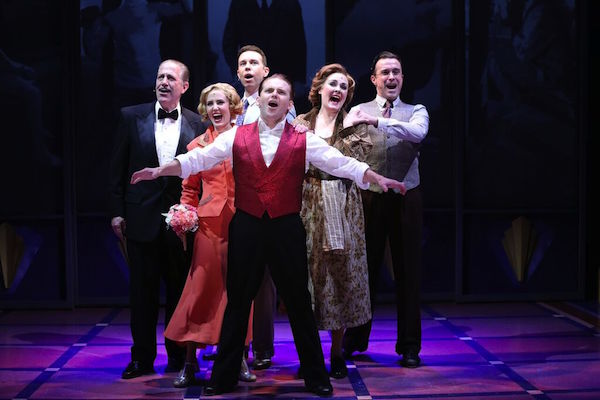
BY TRAV S.D. | In the roll calls of show biz immortals, the name “James Cagney” remains pre-eminent. Today, almost 30 years after his death, Cagney is still held up as the gold standard of realistic American movie acting. His most popular movies — “The Public Enemy” (1931), “Yankee Doodle Dandy” (1942), and “White Heat” (1949) — are still regularly watched by fans. His personal maxim, “Plant your feet, look ’em in the eye, and tell the truth,” has probably been quoted by every acting teacher on the planet. Since mid-March the Westside Theatre has been home to the musical show “Cagney,” which purports to tell the story of this small-statured (5’5”) giant.
Much of what “Cagney” promises entertainment-wise, it delivers (eventually). The best thing about it is its star, Robert Creighton, who is close enough to a ringer that he doesn’t have to do a ridiculous Rich Little-style impression to achieve his illusion. Creighton’s voice register (which actually sounds more like comedian Bert Wheeler than Cagney) is high enough to remind us that the star’s first hurdle was to convince audiences he was no pipsqueak — a probable origin for his tough guy persona. Creighton is a solid actor, comfortable in his skin (and in suits with padded shoulders), and best of all, he’s a terrific tap dancer. The best moments of the show, and the ones audiences are probably paying to see, are the ones where Creighton does Cagney doing George M. Cohan — and to this practiced eye, he nails it.
But (and this is no small thing) the show makes you wait for it — through Peter Colley’s leaden, shapeless, directionless, bloated book, and some forgettable original songs by Creighton and Christopher McGovern. If musicals are a near impossible art form to get right, historical musicals are even harder. For every “1776” and “Hamilton,” there are a thousand Thanksgiving turkeys. The main dilemma in adapting biographical material for the stage is that life and art have different shapes, and a show must pick one or the other in order to succeed. The latter is usually best: pick some discrete, finite aspect of the subject’s complicated life to tell. The alternative, to try to cram every event in some guy’s life into 150 minutes, is seldom fortunate.
Yet, that is the tack which “Cagney” takes. Then, ironically, it goes on to spoon-feed us an endless succession of facts that are either misleading or incorrect. “The Public Enemy” was Cagney’s fourth movie, not his first as this play tells us. In a scene taking place in 1919, we get the line “Mr. Keith says you’re going on the road” — but vaudeville impresario B.F. Keith had been dead for four years, and couldn’t have been bothered with a minor act like Cagney at the time, even if he were alive. There are glaring tonal misrepresentations: a big time vaudeville house is hosted by a terrible hack comedian whose repertoire consists of easily identifiable Henny Youngman jokes from 40 years in the future.
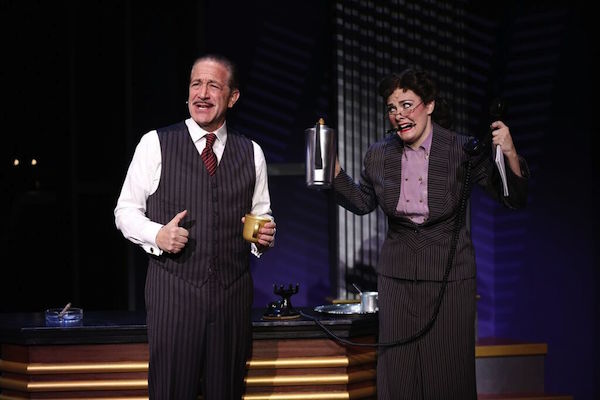
At times it seems almost like the creators are attempting an homage to Hollywood biopics, a genre notorious for its disregard for truth. Several directorial choices by Bill Castellino lead one to suspect as much. Actors are directed to be as broad as possible. The sensitive and intelligent Mae Clarke is presented as a gauche, gum-snapping chorus girl; director William Wellman as a swishy, limp-wristed queen from Central Casting. Producer Jack Warner, whose real name was Jakob Wonsal, is WASPified in the manner of Walter Pidgeon’s Flo Ziegfeld in “Funny Girl.” The otherwise inexplicable presence of Bob Hope telegraphs the inevitable, upcoming “Seven Little Foys” nod — but vastly exaggerates the role Hope played in Cagney’s life. That’s okay, though, as the actor playing him neither looks nor sounds like Bob Hope. So perhaps it’s secretly meant to be someone else.
The biopic angle wouldn’t be bad if the script focused on it. But it also tries to tell another story, a potentially powerful one juxtaposing Cagney’s performance in the all-time most patriotic movie ever, “Yankee Doodle Dandy,” with public suspicions of his left wing politics.
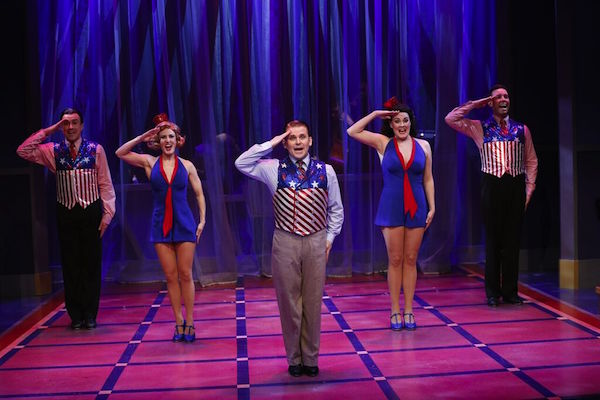
And then there is the framing device of the 1979 SAG awards and a retrospective of his entire career, sometimes amounting to actors reading long lists and descriptions of the films. I kid you not. And then the show stops dead just when some sort of a plot should be heating up, and we get a World War II camp show featuring Cagney’s Cohan tribute. In short, the show has Attention Deficit Disorder. And unfortunately, the excellent Creighton-Cagney-Cohan dance numbers point to all the weaknesses of the rest of the show, leaving your correspondent to wish he were simply watching a production of “Little Johnny Jones” without all the interruptions.
At The Westside Theatre (407 W. 43rd St., btw. Ninth & 10th Aves.). Through July 3: Thurs. & Fri. at 8pm, Sat. at 2pm & 8pm, Sun. at 3pm. As of July 5: Tues. at 7pm, Wed. & Sat. at 2pm & 8 pm, Thurs. at 2pm, Fri. at 8pm, Sun. at 3pm. For tickets ($89), visit telecharge.com or call 212-239-6200. Also visit cagneythemusical.com.











